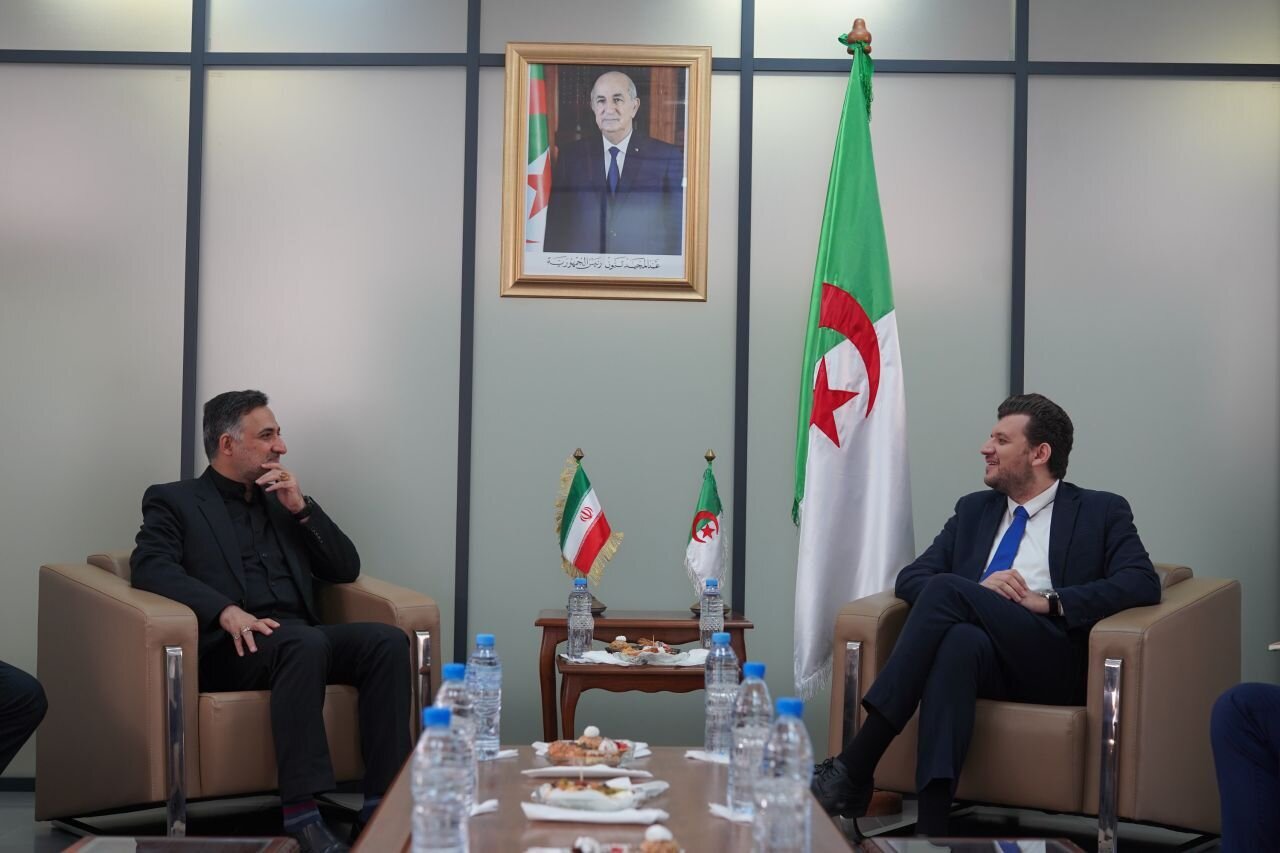Tehran, Algiers to boost technology, innovation co-op

TEHRAN – Iran and Algeria have signed a memorandum of understanding (MOU) to enhance cooperation in areas related to innovation and technology.
The MOU was signed in Tehran on Monday by Rouhollah Dehqani-Firouzabadi, the vice president for science, technology, and knowledge-based economy, and Yassin Al-Mahdi Waleed, Algeria’s minister of economy, knowledge, start-ups, and small companies, the vice presidency’s website reported.
Dehqani-Firouzabadi accompanied a delegation of high-ranking officials, led by President Ebrahim Raisi, in a visit to Algeria on March 2 to attend the 7th Summit of the Gas Exporting Countries Forum.
Sharing innovative experiences and achievements, sustainable and effective cooperation, promoting and expanding the innovation and knowledge-based economy, and developing effective joint channels to exchange technological knowledge and innovative solutions in fields of mutual interests are among the main objectives of this agreement.
The agreement ensures streamlined cooperation to encourage and support technology transfer projects and investment programs for new technology-based firms (NTBF) and start-ups in both countries; create a mutual financial fund for cooperation in innovation and knowledge economy; establish joint companies to carry out research and development projects, and commercialize knowledge-based products; strengthen direct communication between relevant government agencies, regulatory bodies, industrial or commercial organizations, as well as growth centers, accelerators, houses of innovation and technology.
To facilitate the implementation of the agreement, the joint scientific and technological cooperation committee will be formed with an equal number of representatives of both sides within two months after signing the MOU.
Under the agreement, the joint committee is to provide direction and guidance for the implementation of the MOU at most six months from signing; plan, coordinate, monitor, and facilitate scientific and technological cooperation between the parties.
Moreover, it has to formulate and finalize mechanisms to facilitate and support the implementation of joint activities, such as financial transactions; determine the commitments of the parties and the format of joint contracts; as well as an annual review of the methods and areas of cooperation.
Accessing new markets
In February, Amir-Hossein Mirabadi, an official with the Vice Presidency for Science and Technology, said accessing new markets is a newly adopted strategy; that is deepening trade ties with countries, like Africa, that the country has failed to note before.
Lack of knowledge and sufficient information about a region makes one assume there is no market or that it would be impossible to do business there.
Assessing African countries' market capacities, it was found that there are potential opportunities for market entry and expanding ties. What matters is earning foreign currency revenue not where it comes from, it can be an advanced European country or an African country.
Latin American region is the same. Market capacities in countries like Venezuela, Nicaragua, and Cuba are not fully known yet.
As soon as knowing these capacities, they made many requests for expanding collaboration with Iran.
Algerian officials have so far visited Iran three times in the current Iranian year. The two countries have good political relationships, but no record in knowledge-based economy and technological field. So, Iran is planning to set up iHiT in Algeria to create new markets for domestically-made Iranian products.
Concerning the quality of the products and their competitive prices, it is easier to enter a market where there are fewer competitors.
Unlike most other countries that endeavor to monopolize their technology, Iran has announced readiness to export not only its products but also the technology to any country collaborating with Iran.
Iran is ready to share its technological knowledge and experiences with any country that is willing to cooperate as a new market and have joint production. Uzbekistan is one of the countries wherein joint production infrastructure is being followed up. Later, jointly-made products in Uzbekistan will be exported to other countries.
It should be noted that the technology won’t be traded, and the rights of the companies must be preserved. Iran empowers friendly countries while they create a market for Iranian knowledge-based companies.
Algeria lauds Iran’s technological achievements
In August 2023, Ibrahim Boughali, the speaker of the National Assembly of Algeria, praised Iran's achievements in medical, agricultural, and technological fields, saying that Iran can help other Islamic countries make scientific progress
Boughali visited Iran’s House of Innovation and Technology (IHIT) in Tehran, as he was accompanied by Mirabadi, IRNA reported.
“Tehran-Algeria interactions in knowledge-based fields will benefit the two countries,” the Algerian official highlighted.
“Algeria’s new policy is to reduce its dependence on oil and gas and to make more diverse investments in other sectors.”
He added the exchange of information and interactions between experts is essential, and the result will benefit the two countries.
Mirabadi, for his part, said: "We are optimistic about strengthening the relations between the two countries and we hope to be able to establish bilateral cooperation in the fields such as agriculture, water, electricity, as well as oil and gas.”
“We should try to develop economic ties between the two countries, especially between knowledge-based companies. Boosting cooperation with Algeria in the field of science and technology is one of our priorities.”
He said Iran is ready and willing to support the expansion of science and technology sectors in Algeria.
MT/MG
Leave a Comment